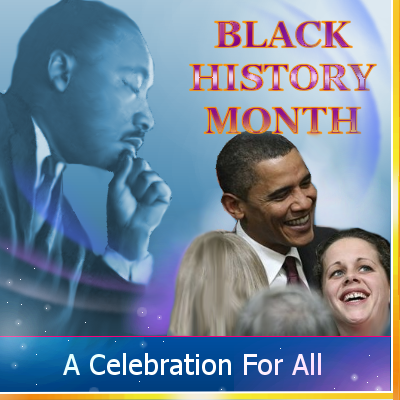BLACK HISTORY MONTH is now being celebrated around the world by all. What are you doing in recognition of African American heroes? Find out what others are doing to acknowledge African Americans’ great contributions to American society and the world at large.
Black History In New Orleans
New Orleans, a major port gave birth to a class of descendants from French and Spanish settlers and African slaves. Thus a vibrant middle-class community of Whites, Creoles, and African decedents was formed.
By the latter part of the 19th century, Creoles were classified as blacks mixing with blacks, many of whom had come from the Mississippi Delta, and the West Indies, in particular Haiti. This fusion of culture, art, and style is uniquely characteristic of New Orleans.
Take A Trip To New Orleans
New Orleans, is home to the French Quarter, Jackson Square, Jazz Fest, French Market, and Musee Conti Wax Museum.
Visit The City of New Orleans
http://neworleansonline.com
http://lsm.crt.state.la.us
neworleanswebsites.com
Black History In South Carolina
African-Americans became a majority in South Carolina until the early 20th century
Slaves shipped from Africa and the West Indies to Charlestown brought with them skills that helped build the South Carolina economy.
More than half of the free blacks were racially mixed of which some of the most outstanding leaders were born.
Research South Carolina African American History
www.scafricanamericanhistory.com/
www.sciway.net/afam/
Visit South Carolina Museums at
http://www.museum.state.sc.us
www.discoversouthcarolina.com
www.sciway.net/
Black History In Virginia
Also, the indentured servants, especially once freed, began to pose a threat to the property-owning elite.
Also, servants moved on, forcing a need for costly replacements; slaves, especially ones you could identify by skin color, could not move on and become free competitors.
In 1640 three servants fled a Virginia plantation. Caught and returned to their owner, one of the slaves was sentenced to “serve his said master or his assigns for the time of his natural life.” He was made a slave.
In 1662, Virginia decided all children born in the colony to a slave mother would be enslaved. Slavery was not only a life-long condition; now it could be passed, like skin color, from generation to generation. Yet skin color did not stop many freed slaves from prospering and gaining wealth beyond their well-to-do white counterparts. Ellison was one of these. Though black he was a slave owner and one of the top cotton gin manufacturers in the state.
The Black History Museum and Cultural Center of Virginia
www.blackhistorymuseum.org/
www.academicinfo.net/africanamlibrary.html
Black History In Washington DC
Washington, DC is one of the largest and most prominent black-dominated communities in the United States.
Washington, DC, attracted large numbers of blacks after the Civil War. By 1960 the city had a black majority population. Washington became the center of black political organizations and famous civil rights movement marches in the 1960s.
Many alive today who shared in the civil rights movements of the late 60s did not think they would live to see the day when an African American was elected as President of the United States. Still, they were confident the day would come.
Visit the Washington District of Columbia Museums.
America’s national educational facility with 18 museums, 9 research centers, and 120 affiliates around the world.
http://www.smithsonianeducation.org/
Discover Your Family History
Learn how folks are discovering their family heritage and making HISTORY at the same time.
Do you know the names of your ancestors in the 18th, 17th, and 16th centuries? You’ll find a wide and varied people who in a small or big way touched your life and shaped at least some of who you are. What lessons can you learn from the life your ancestors lived? Did they leave paths to follow, projects to complete, and goals and ambitions yet to be fulfilled? Were there lessons that highlight the need for courage or to choose a different path for the greater good? It’s all there in your family tree.
African American Story Telling
The stories are made themselves as we research, document, and talk about what has been passed on to us and what we’ve come to know.
African-American storytelling has become a sweeping renaissance brought into the Americas by African slaves. Since the days of the Egyptian empire, storytelling in African culture has been a way of passing wisdom, history, education, and legacy to the next generation.
Ever since PBS featured an unprecedented four-hour series “AFRICAN-AMERICAN LIVES”, a compelling combination of storytelling and science, our youth are taking a greater interest in where they came from in order to define where they’re headed.
As Black History month rolls by many will be absorbed in a celebration of African-American culture through documentaries, viewing historic artifacts, music, storytelling, and new and renewed acquaintances and friendships.

